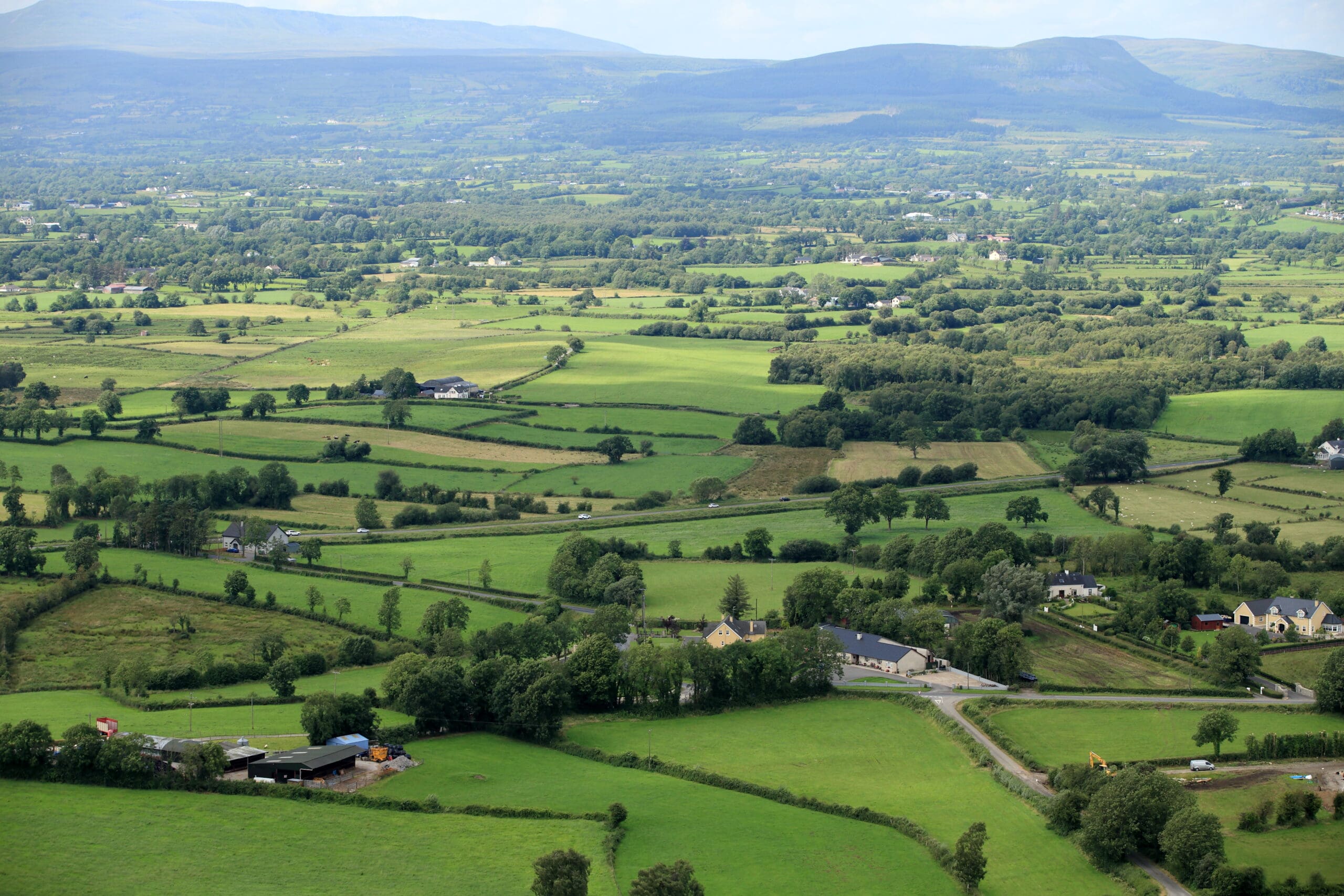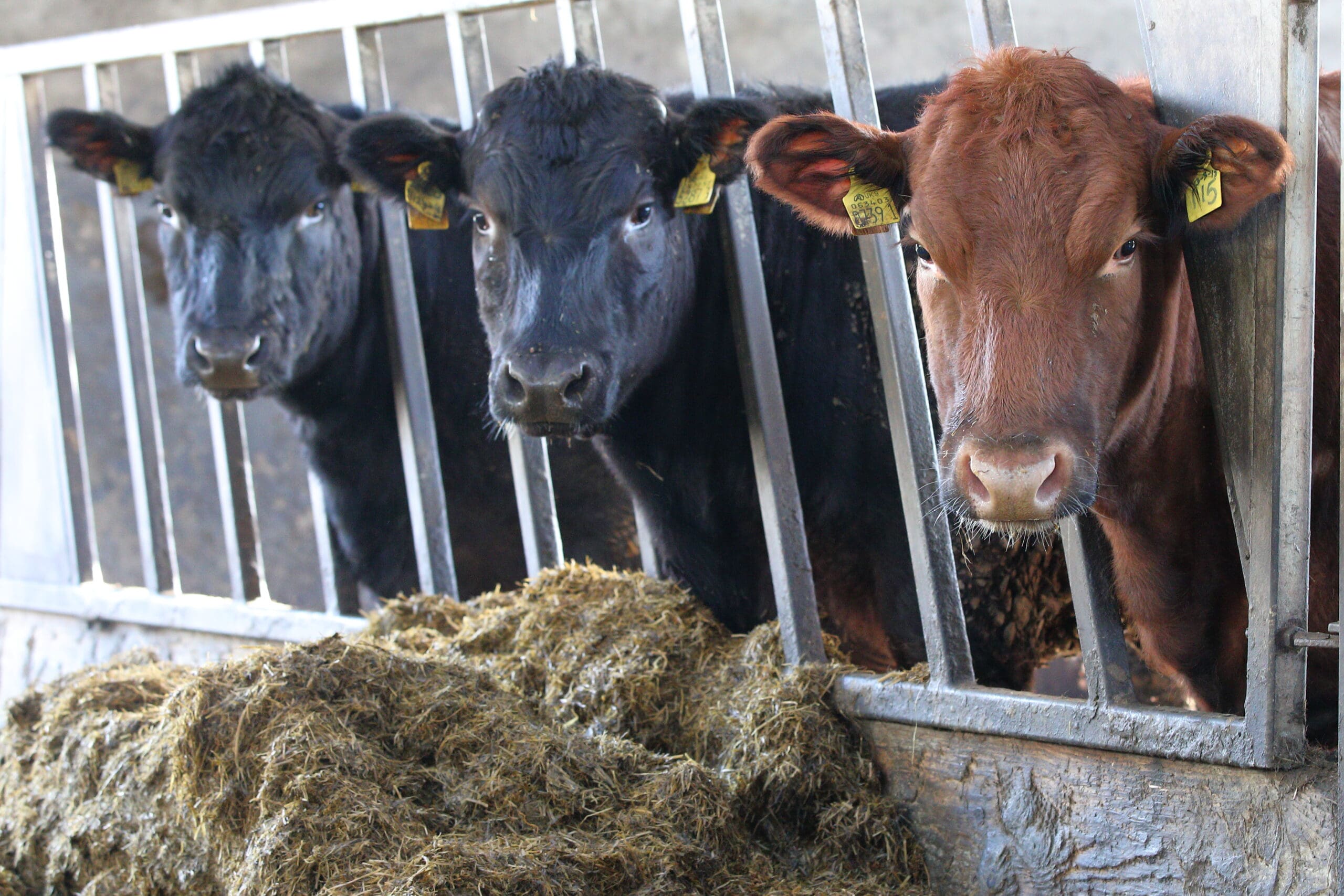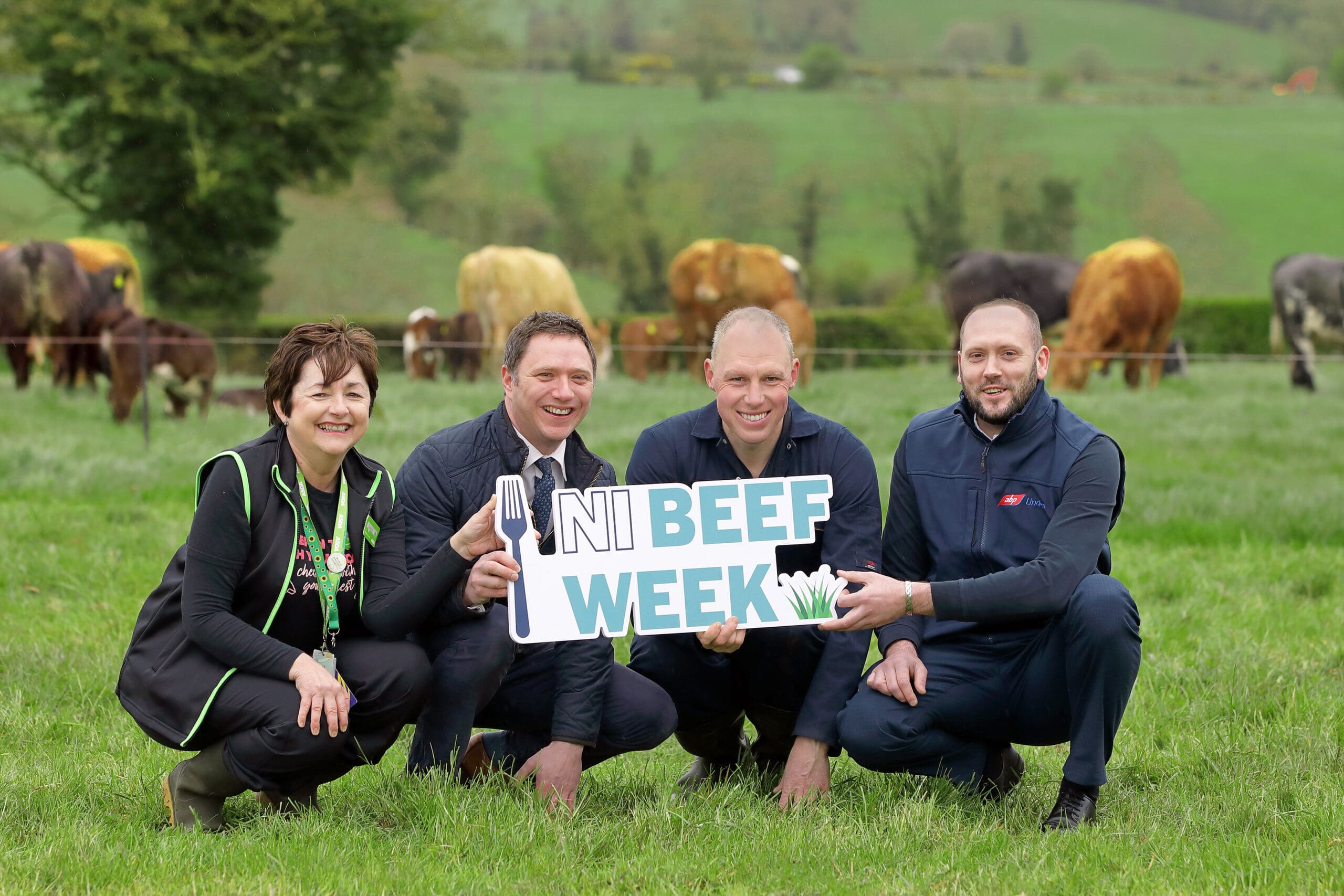The Ulster Farmers’ Union has taken quite a bit of heat this week over its position on implementing the new CAP. Farming Life sat down with UFU President Harry Sinclair and Chief Executive Clarke Black to hear what they Union had to say.
FL: The Union has been criticised for its position on implementing the new CAP, what’s your take on it?
HS: Well that’s not uncommon for an organisation which represents all farm types and sizes. Because of the movement of direct support under the new CAP away from production and towards a flat rate payment there are a significant number of farmers who are going to see reductions in their SFP support. Understandably they want to vocalise their discontent. And it is not surprising that the loudest critical voices are those who are set to gain from their own proposals.
FL: Did the UFU have a ‘change of heart’ on regionalisation at the last minute?
CB: Absolutely not. We presented the full range of DARD models to our Executive Committee in October. All of the Union’s policy committees then debated these alternatives and our Executive met in December to consider all of our committee views and to agree the Union’s final position. To suggest that the Union had an agreed position which was subsequently changed just shows a complete lack of understanding of how the Union’s bottom–up democratic structure works.
FL: DARD has proposed a single region for all of Northern Ireland, what’s wrong with that?
HS: The UFU’s guiding principle has always been to secure support for productive agriculture. A single region moves more money from the more intensive DA and lowland farms to the more extensive SDA farms and in fact, any extensive farm, including many hill farms, is set to gain regardless of which region NI goes for. The single region is an easy option for DARD, but it’s not the right or fair option for supporting productive agriculture.
FL: And if the Minister decides to adopt a single region approach, what is your biggest concern?
HS: If DARD opts for the single region model, support will be diverted away from productive to extensive agriculture and they will be sending the message that they are not really serious about supporting the ‘Growing for Growth’ strategy. But we believe strongly that the biggest risk is that we will lose the argument, which we have fought hard to win, that there should be different payments in the four UK regions to reflect the importance of their farming sectors and their output. Moving to a single region in Northern Ireland would give Scotland a stronger case that all land in the UK should be treated the same and payments should move to a UK flat rate. If Scotland where to win its case, and it will be up for review again in 2017, then NI farming could lose over £82.07 (€100) million per annum, which is almost one third of our entire annual SFP budget.
FL: Many farmers in the SDA are saying that the Union’s two region model is taking support away from already hard pressed hill farmers?
CB: There is a lot of misinformation around at present. The fact is that the Union’s two region model will not take any money out of the SDA area. The total SFP fund which is currently in that area would ring-fended and remain there. Indeed our proposals have would put additional targeted funds into the SDA to specifically address the significant losses which cattle farmers would experience as the transition takes effect.
FL: But some are saying that SDA farmers will be over £100/ha worse off with a two region model?
HS: That’s just not true. Those who say that are referring to the difference between the average payment in the SDA (£215.84 (€263)) and the average in the DA and lowland (£311.05 (€379)). Under the single region model the average payment is £270.01 (€329,), which is only a difference of £54.17 (€66) (£55).
FL: Many sheep farmers in all areas of NI are saying that they lost money in the last CAP reform and they are going to lose again in this one?
CB: Well, the figures don’t actually support that view. It’s correct to say that in 2005, Ewe Premium was reduced by 35% and the LFA top-up by 80% but each of those farmers received an additional area payment of £64.01 (€78)/ha. So in pure stocking terms, any hill farmer whose stocking rate was below 6 ewes/ha (which is above the average) or lowland farmer stocked at just under 11 ewes/ha actually got more money in 2005. Furthermore, SDA sheep farmers will have a minimum average gain of over 50% under any model in this CAP reform while DA and lowland sheep farmers will in fact receive less direct support under a single region model.
FL: You have proposed that additional support for suckler cows will come from the Rural Development budget. Surely with a reduced budget there just won’t be enough money to do this?
HS: We don’t believe that. Certainly our future RDP budget is reduced, but if DARD match fund the EU’s allocation at the same level as the present RDP, then there is enough money to fund: an Agri environment scheme; LFA support; the minimum required by the EU for wider rural schemes; and a well funded support scheme for the suckler cow sector across NI as a whole. In the next RDP it’s all about prioritisation and this is a real opportunity for DARD to demonstrate their support for farmers and the Agri-food ‘Growing for Growth’ Strategy.
FL: The UFU are coming under fire from other livestock organisations, what do you have to say to them?
HS: This is not about sectors. It is about productive agriculture and we have great difficulty in understanding the logic of their positions of only supporting part of their membership at the expense of the rest. What do their DA or lowland members think of their position? Particularly those in the DA who will also be ineligible for ANC support in the future and will receive less direct support, which will be redirect to extensive producers in the SDA under a single region model. The Union’s position is to secure as much support as possible for productive agriculture in all sectors, which we firmly believe will benefit all of NI farming and the NI economy.




